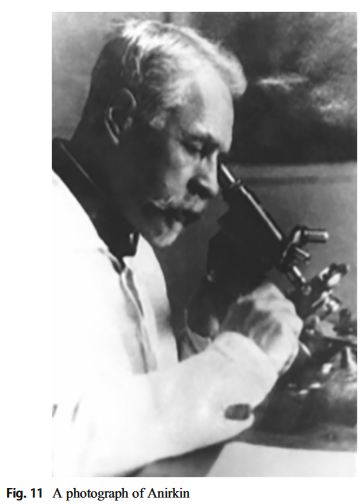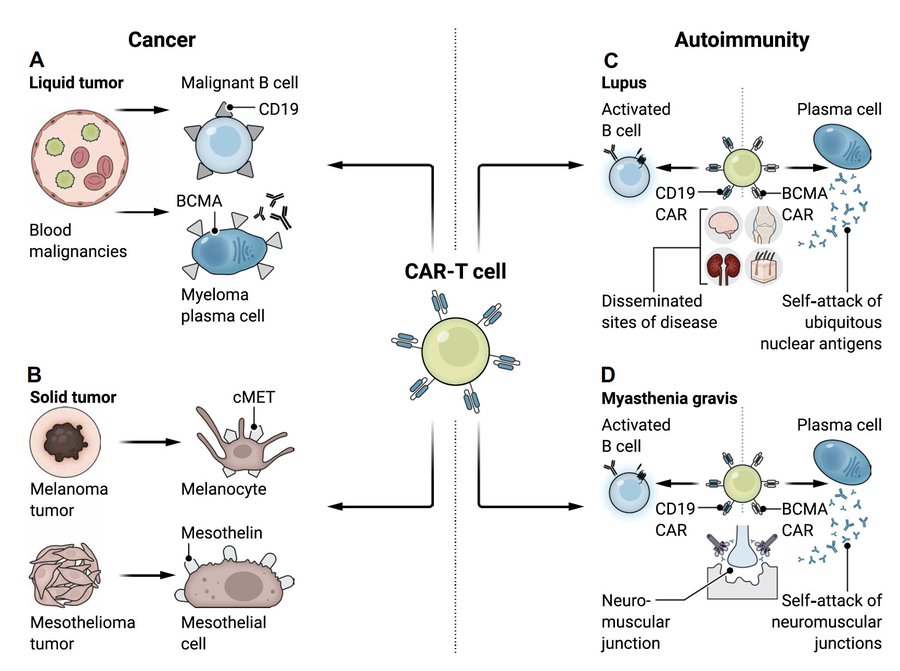Whatever we do in medicine has a history.
Hematologists take a sample from the bone marrow (BM) every day. But where do we come from?
A short history 🧵 about BM biopsy.
#MedTwitter #hematology #pathology
Hematologists take a sample from the bone marrow (BM) every day. But where do we come from?
A short history 🧵 about BM biopsy.
#MedTwitter #hematology #pathology

1/
Trepanning:
-oldest known procedure carried out on mankind
-8-10k years old skulls with evidence of medical intervention (found in 🇪🇺, Africa, Asia, New Guinea, Tahiti, New Zealand)
-for headaches, mentalities
-many "patients" survived (evidence of healing of their bones)
Trepanning:
-oldest known procedure carried out on mankind
-8-10k years old skulls with evidence of medical intervention (found in 🇪🇺, Africa, Asia, New Guinea, Tahiti, New Zealand)
-for headaches, mentalities
-many "patients" survived (evidence of healing of their bones)

2/
Celsus (c. 25 BC - c. 50 AD):
-described "trephination"
-recommended it for removal of damaged cranial bones and as a therapeutic measure for relieving headaches
-with a specialized instrument, a surgical modiolus or crown trephine
-encyclopedia "De medicina" before 47 CE
Celsus (c. 25 BC - c. 50 AD):
-described "trephination"
-recommended it for removal of damaged cranial bones and as a therapeutic measure for relieving headaches
-with a specialized instrument, a surgical modiolus or crown trephine
-encyclopedia "De medicina" before 47 CE

3/
Trepanation was kept for skulls, even during Renaissance.
The most famous portraits of trephining in mental illness probably come from the beginning of the Flemish Renaissance.
The Cure for Madness (or Folly) by Hieronymus Bosch’s 👇
Trepanation was kept for skulls, even during Renaissance.
The most famous portraits of trephining in mental illness probably come from the beginning of the Flemish Renaissance.
The Cure for Madness (or Folly) by Hieronymus Bosch’s 👇

4/
1700s:
-"crown trephines" used for therapeutic measures but not for diagnostic use
-similar trephines have continued to be used by surgeons to the present day for therapeutic purposes on the skull
1700s:
-"crown trephines" used for therapeutic measures but not for diagnostic use
-similar trephines have continued to be used by surgeons to the present day for therapeutic purposes on the skull

5/
1903:
-first attempt to obtain a bone marrow sample by surgical trephine for diagnostics by Pianese (Italy)
-punctured the top part of the epiphysis of a femur
-described a case of anaemia because of bone marrow infiltration by Leishmania as ‘Leishmania Infantum’
1903:
-first attempt to obtain a bone marrow sample by surgical trephine for diagnostics by Pianese (Italy)
-punctured the top part of the epiphysis of a femur
-described a case of anaemia because of bone marrow infiltration by Leishmania as ‘Leishmania Infantum’

6/
1922:
-Morris and Falconer introduced a method for tibial marrow biopsy using a drill like instrument that produced a marrow specimen very similar to that obtained today
1922:
-Morris and Falconer introduced a method for tibial marrow biopsy using a drill like instrument that produced a marrow specimen very similar to that obtained today

7/
1920s-30s:
-sternum as main source
-Seyfarth (1922) developed a puncture needle for open biopsy (between 3rd and 4th ribs)
-Anirkin (1927) obtained bone marrow from the sternum using a lumbar puncture needle, used also for the recognition of typhus and tuberculosis
1920s-30s:
-sternum as main source
-Seyfarth (1922) developed a puncture needle for open biopsy (between 3rd and 4th ribs)
-Anirkin (1927) obtained bone marrow from the sternum using a lumbar puncture needle, used also for the recognition of typhus and tuberculosis

8/
1936
-Tocantins & O’Neill discovered in rabbits, only 2ml would be obtained at distal end by injecting 5ml of saline into proximal end of the medulla rcavity of a long bone
>>conducted to the idea of an intramedullary infusion
>>previous🧵on BMT
1936
-Tocantins & O’Neill discovered in rabbits, only 2ml would be obtained at distal end by injecting 5ml of saline into proximal end of the medulla rcavity of a long bone
>>conducted to the idea of an intramedullary infusion
>>previous🧵on BMT
https://twitter.com/NicoGagelmann/status/1600696971831889925?s=20&t=-thPwB8qrLrgwaKpI8GH8Q
9/
Needles, 1935:
-developed by Klima and Rosegger with guards
-Leitner further modified the needle with the guard running on a thread
Needles, 1935:
-developed by Klima and Rosegger with guards
-Leitner further modified the needle with the guard running on a thread

10/
What about the hip?
-iliac crest considered as possible puncture site when first deaths were reported in 1943 and 1944 after
sternal aspirations
👉the sternum was completely pierced and the right heart penetrated
👉 sternal puncture be made by light taps with a small hammer
What about the hip?
-iliac crest considered as possible puncture site when first deaths were reported in 1943 and 1944 after
sternal aspirations
👉the sternum was completely pierced and the right heart penetrated
👉 sternal puncture be made by light taps with a small hammer

11/
How about the hip?
-not until 1950
-no suitable needles were not available
-Bierman (1952) suggested using posterior iliac crest
-Sacker-Nordin trephine (1954) first provided safe and sufficient material for accurate diagnosis from iliac crest
How about the hip?
-not until 1950
-no suitable needles were not available
-Bierman (1952) suggested using posterior iliac crest
-Sacker-Nordin trephine (1954) first provided safe and sufficient material for accurate diagnosis from iliac crest

12/
1958:
-~5% failure rate in carrying out aspiration biopsies
👉 McFarland & Dameshek described a technique using the Vim-Silverman biopsy needle (published by Silverman 1938)
👉in left lateral position from the right iliac crest, local anaesthetic, without skin incision
1958:
-~5% failure rate in carrying out aspiration biopsies
👉 McFarland & Dameshek described a technique using the Vim-Silverman biopsy needle (published by Silverman 1938)
👉in left lateral position from the right iliac crest, local anaesthetic, without skin incision

13/
1964:
-Ellis & Westerman reported on ~1500 cases using a modification of the Vim-Silverman needle
👉finger grips, assembly stylet, obturator, larger and sturdier
-commonly used trephine needle in the 1960s/1970s was the Gardner's trephine needle👇
1964:
-Ellis & Westerman reported on ~1500 cases using a modification of the Vim-Silverman needle
👉finger grips, assembly stylet, obturator, larger and sturdier
-commonly used trephine needle in the 1960s/1970s was the Gardner's trephine needle👇

14/
1971:
-Jamshidi patented his needle
👉inside diameter of the distal part tapered radially towards the cutting edges
👉stylet projects beyond tip protecting the cutting edge and providing easy
enter
👉used during several decades for BM aspiration
1971:
-Jamshidi patented his needle
👉inside diameter of the distal part tapered radially towards the cutting edges
👉stylet projects beyond tip protecting the cutting edge and providing easy
enter
👉used during several decades for BM aspiration

15/
Modernity:
-electric drilling biopsies were proposed from the anterior iliac crest
-1988, patent application for an electric biopsy needle by Parapia (with a replaceable needle)👉abandoned -1982, Islam described improvement with lateral holes in distal part of needle👇
Modernity:
-electric drilling biopsies were proposed from the anterior iliac crest
-1988, patent application for an electric biopsy needle by Parapia (with a replaceable needle)👉abandoned -1982, Islam described improvement with lateral holes in distal part of needle👇

16/
Actuality:
-Muschler & Hernigou developed several methods to obtain the highest concentrate BM aspirate possible. 👉highlighted problem of number of cells with more volume vs diluted blood
👉recommend to limit aspiration volumes to 4ml
from each
Actuality:
-Muschler & Hernigou developed several methods to obtain the highest concentrate BM aspirate possible. 👉highlighted problem of number of cells with more volume vs diluted blood
👉recommend to limit aspiration volumes to 4ml
from each

17/
Maybe there is an easier and less painful method of carrying out BM biopsy (better needles?). Furthermore, liquid biopsies will possibly challenge the necessitiy of the procedure. Till then, it will be one of the first procedures #hematology trainees need to learn.
Fin.
Maybe there is an easier and less painful method of carrying out BM biopsy (better needles?). Furthermore, liquid biopsies will possibly challenge the necessitiy of the procedure. Till then, it will be one of the first procedures #hematology trainees need to learn.
Fin.

Helpful resources:
onlinelibrary.wiley.com/doi/10.1111/j.…
link.springer.com/article/10.100…
jamanetwork.com/journals/jama/…
link.springer.com/article/10.100…
onlinelibrary.wiley.com/doi/10.1111/j.…
link.springer.com/article/10.100…
jamanetwork.com/journals/jama/…
link.springer.com/article/10.100…
• • •
Missing some Tweet in this thread? You can try to
force a refresh




















